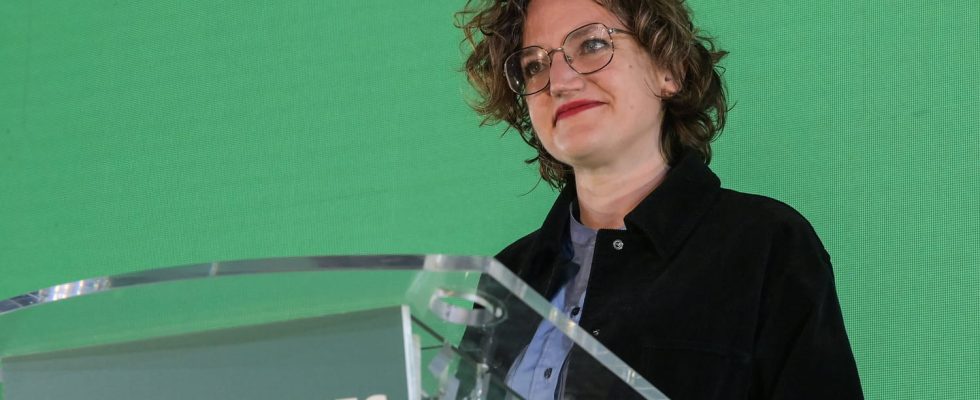Badly seen by part of the agricultural sector, the environmentalist party is trying to renew dialogue with farmers, who denounce an accumulation of environmental standards.
Can farmers and environmentalists still agree as crisis erupts in the agricultural sector? The elected representatives of Europe-Ecologie-Les Verts took longer to take up the subject than the other political forces, the presidential majority and the National Rally in the lead. Which did not fail to emphasize the disconnect between the environmental standards advocated by environmentalists and the reality of farmers, stifled by the multitude of ecological and administrative standards generated by French legislation and the European Parliament. But this is “a danger into which some are trying to lead us, which consists of pitting farmers and ecologists against each other”, pointed out Marie Toussaint, head of the ecologists’ list in the European elections, on BFMTV.
“Stopping the ecological transition would be a mistake for farmers”
EELV elected officials are determined to return to discussions with farmers so as not to leave room for the government or the extremes. They are also determined to erase the label of urban ecologists who “despise the farmers that certain political forces stick to them, according to David Cormand, national secretary of the party who spoke in Release : “Farmers are not doing well and are having difficulty with the environmentalists’ proposals, which they take as attacks. […] As we seek to make their activity more livable and more sustainable. […] We’re kind of the only ones doing it…”
The objective? Demonstrate that the future of agriculture goes hand in hand with ecology: “Agriculture has no future without ecological transition, our destinies are linked. There have been a lot of prejudices between farmers and ecologists , we have a duty to talk to each other more,” launched Marie Toussaint during a press conference at EELV headquarters on January 24.
The MEP proposes to farmers a three-point plan: the cancellation of farmers’ debt to start on new bases; the promise of revenue visibility over three years; and the end of free trade agreements that lead to unfair competition with imported products. This last measure effectively responds to one of the main reasons for the anger of farmers who complain of being stifled by standards while being put in competition with products that are much less environmentally controlled and therefore less expensive. But what about the other points of tension on the compulsory reduction in the use of pesticides without proposing alternative solutions? Or even on the “decrease trajectory of around 15%” of the European Green Deal criticized by the FNSEA?
EELV blames the government
Accused of being the bane of ecology and of regularly opposing projects defended by the agricultural sector in the name of ecology and the fight against global warming, the EELV party denies any responsibility in current agricultural policies. . “We are not the ones who develop current agricultural policies!” thus released MEP David Cormand to the World which reminds us that the party has been absent from government for several years and rather distant from the demands of the FNSEA, the leading agricultural union in France. Other members of the party explicitly place the blame on the presidential camp: “The people responsible for this crisis are in the government: it is their inaction and their ever more liberal policies which have led to this situation”, said those close to Mayor EELV. from Grenoble, Eric Piolle, to Release. In the ranks of the Young Ecologists we go so far as to denounce “Renaissance which precarizes [les agriculteurs] For years”.
Stubborn dissidence and resentment?
The environmentalists’ operation to make themselves heard and convince farmers that they have a common objective is launched. But relations will be difficult to calm as the positions of environmentalists and farmers are opposed on certain measures. The end of the tax exemption for non-road diesel desired by farmers and which upsets green elected officials, or the mega-basin projects supported by farmers but criticized by environmentalists, to the point of supporting the installation of ZAD for some , are examples of this.
Some elected officials have also compared the mobilizations of farmers and the demonstrations of environmental activists sometimes described as “ecoterrorists”. Yannick Jadot was outraged by a double standard between the two movements, believing Public Senate that if green activists did “a thousandth of what is happening today”, they would be “in prison and condemned”.
